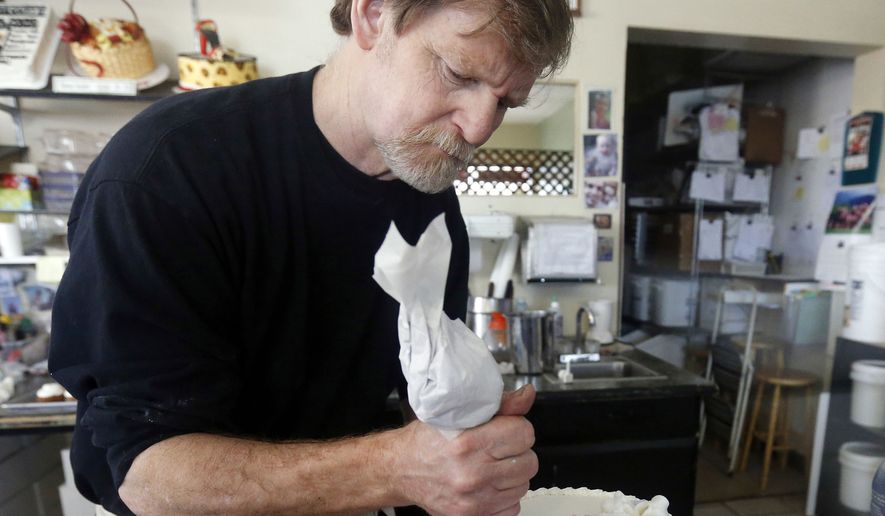Trump administration lawyers asked the Supreme Court Wednesday for permission to argue on behalf of a Christian baker who refused to make a cake for a same-sex wedding ceremony, in a case that promises to test the limits of gay rights and First Amendment freedoms.
The Trump administration is backing the baker, Jack Phillips, who has argued his free speech right to express himself through his cakes was infringed when Colorado’s civil rights commission ordered him to bake cakes for everyone, regardless of their sexual orientation.
“As a general matter, the United States has a substantial interest in the preservation of federal constitutional rights of free expression,” wrote Noel Francisco, the government’s solicitor general, in his motion asking for time to argue the case Dec. 5 alongside the lawyers for Mr. Phillips.
Lower courts ruled Mr. Phillips violated Colorado’s anti-discrimination law by refusing to create the wedding cake. Colorado’s law makes it illegal for businesses to discriminate against people based on sexual orientation, race or religion.
Alliance Defending Freedom (ADF), a religious liberty law firm representing Mr. Phillips at the Supreme Court, says he’s a cake artist and the freedom of speech gives him the right to refuse creating a message that contradicts his faith.
If the court grants the government’s request, which it typically does, the Justice Department would have 10 minutes of argument time while ADF retains 20 minutes to argue before the justices.
“We are pleased to have the support of the Department of Justice. It doesn’t come as any surprise that they would want to protect the First Amendment rights of the country’s citizens,” said Jeremy Tedesco, senior counsel for ADF.
But the American Civil Liberties Union (ACLU), who is representing the same-sex couple Charlie Craig and Dave Mullins, says the court has rejected business’ avoiding anti-discrimination laws through First Amendment claims.
“This is not about the cake. Charlie and Dave walked into the Cakeshop and were turned away because of who they are,” said Louise Melling, deputy legal director at the ACLU. “The stakes could not be higher. A ruling against them at the Supreme Court will not just encourage other businesses to engage in similarly discriminatory practices: It will enshrine a constitutional right to discriminate.”
The ACLU has petitioned the court to also argue in the case on the side of the Colorado Civil Rights Commission.
• Alex Swoyer can be reached at aswoyer@washingtontimes.com.




Please read our comment policy before commenting.